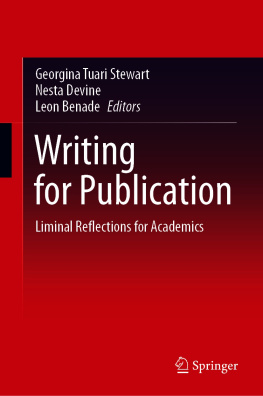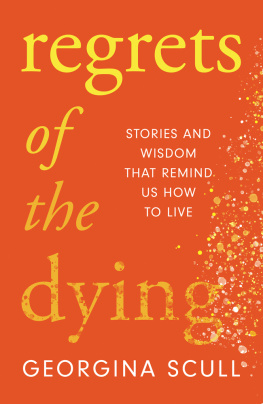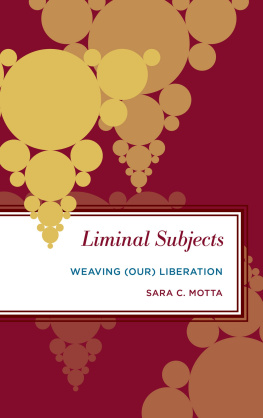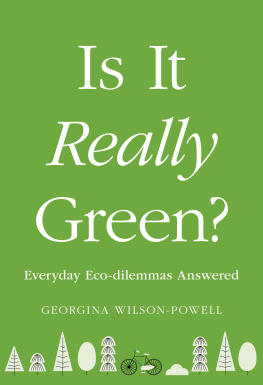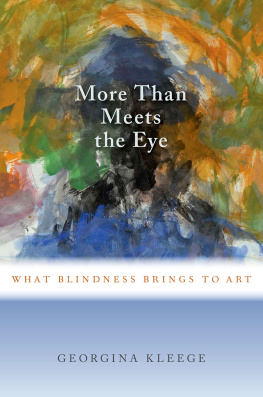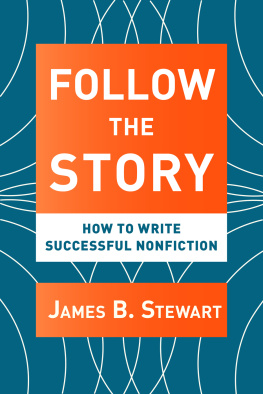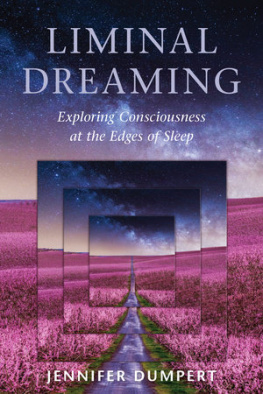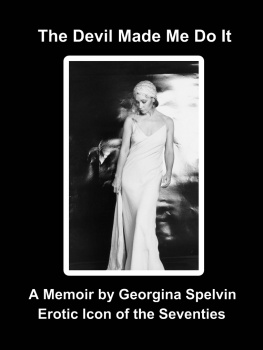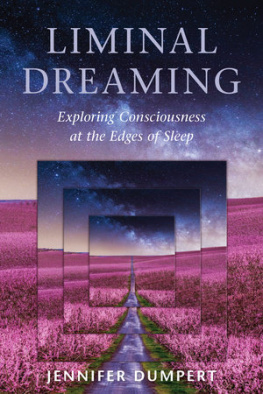Georgina Tuari Stewart - Writing for Publication: Liminal Reflections for Academics
Here you can read online Georgina Tuari Stewart - Writing for Publication: Liminal Reflections for Academics full text of the book (entire story) in english for free. Download pdf and epub, get meaning, cover and reviews about this ebook. year: 2021, publisher: Springer Singapore, genre: Romance novel. Description of the work, (preface) as well as reviews are available. Best literature library LitArk.com created for fans of good reading and offers a wide selection of genres:
Romance novel
Science fiction
Adventure
Detective
Science
History
Home and family
Prose
Art
Politics
Computer
Non-fiction
Religion
Business
Children
Humor
Choose a favorite category and find really read worthwhile books. Enjoy immersion in the world of imagination, feel the emotions of the characters or learn something new for yourself, make an fascinating discovery.
- Book:Writing for Publication: Liminal Reflections for Academics
- Author:
- Publisher:Springer Singapore
- Genre:
- Year:2021
- Rating:3 / 5
- Favourites:Add to favourites
- Your mark:
- 60
- 1
- 2
- 3
- 4
- 5
Writing for Publication: Liminal Reflections for Academics: summary, description and annotation
We offer to read an annotation, description, summary or preface (depends on what the author of the book "Writing for Publication: Liminal Reflections for Academics" wrote himself). If you haven't found the necessary information about the book — write in the comments, we will try to find it.
Writing for Publication: Liminal Reflections for Academics — read online for free the complete book (whole text) full work
Below is the text of the book, divided by pages. System saving the place of the last page read, allows you to conveniently read the book "Writing for Publication: Liminal Reflections for Academics" online for free, without having to search again every time where you left off. Put a bookmark, and you can go to the page where you finished reading at any time.
Font size:
Interval:
Bookmark:
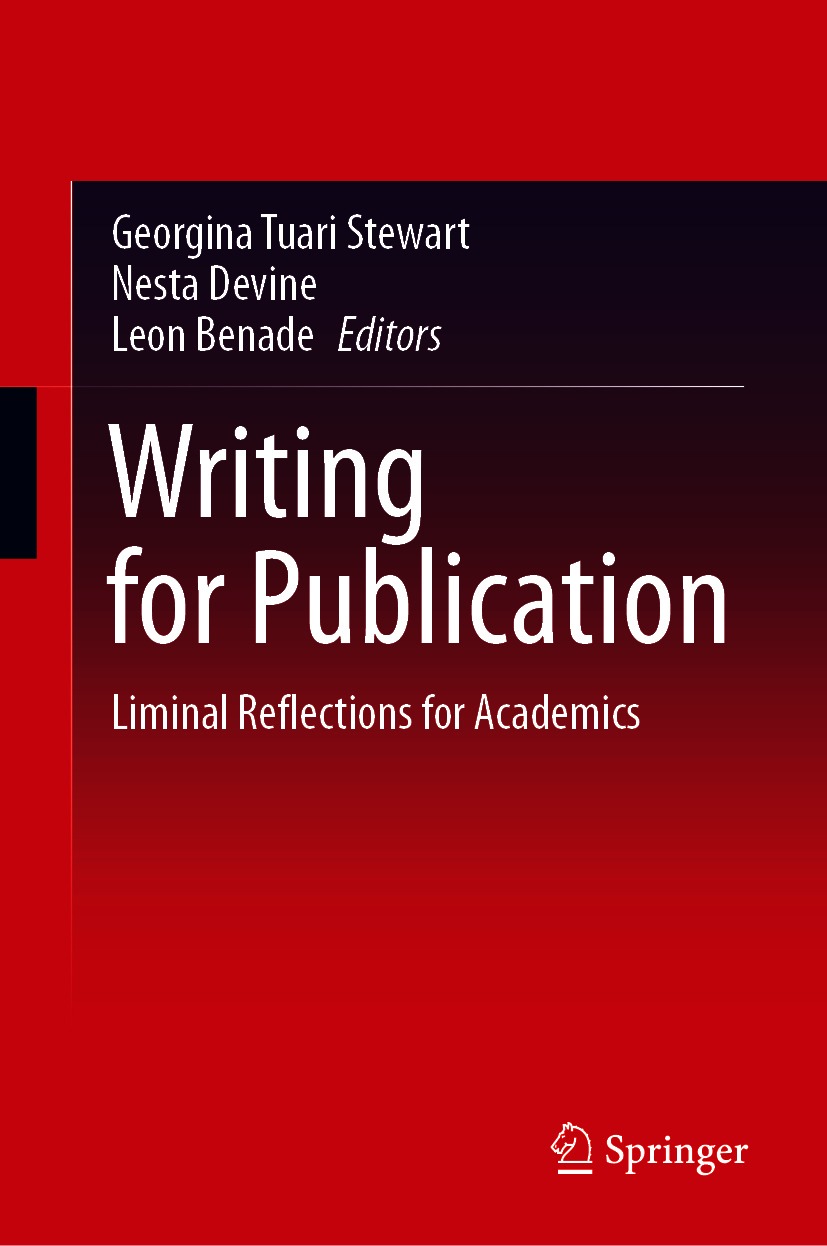

This Springer imprint is published by the registered company Springer Nature Singapore Pte Ltd.
The registered company address is: 152 Beach Road, #21-01/04 Gateway East, Singapore 189721, Singapore
I am very pleased to write the foreword for this book. The original conception for compiling a book on writing and publishing developed from a course taught at the School of Education at AUT during 2017 and 2018 concerned with scholarly writing and publishing. I had accepted a three-year contract at the School of Education, from 2018 to 2020. Although I coordinated the course, the three editors of the book also participated. The focus of the taught lectures was on developing better practical techniques and on understanding the processes of writing successfully for scholarly publication. Those who enrolled for the course were either Staff or Ph.D. students from across AUT. As well as dealing with the creative processes of framing, conceptualising, and getting pen to paper, the course also sought to develop a critically discerning approach towards publishing outlets, especially academic journals. This included researching possible journal outlets, selecting target journals, liaising with editors, understanding the processes of scholarly review, managing peer feedback and responding appropriately to this feedback, in such a way as to improve the quality of the finished submission.
Underpinning the course was an explicit intention of relating professional practice to research and writing for publication, specifically in relation to such topics as curriculum, learning and teaching. The paper offered support to educational practitioners to incorporate a serious research habit within their working lives and careers in order to develop a portfolio of potentially publishable outputs, ranging from traditional academic articles and books, also including book reviews and editorial opinions, but also focusing on the newer media such as video articles, radio broadcasts, blogs and web pages. An important background objective was to instill research and writing as central to the habitus of the academic as someone who defined themselves as a reflective practitioner and spokesperson on issues of both local and global concern. The editors of this volume, and several other staff who have contributed chapters, participated as staff on the course, and shared their own knowledge and experience through formal lectures, individual and small group tutorials and focus-groups, as well as one-on-one mentoring. Course participants sought to develop their knowledge and understanding of writing and publishing techniques and processes through individual in-class activities of writing their own scholarly article for publication, the final products which were submitted as part of the formal assessment for the course. Some of the lectures that staff developed, as well as some of the articles that those who took the course submitted, appear here in this volume, after considerable revision, and a great deal of wordsmithing, and endless spitting and polishing'. Prospective participants in the course were told in advance that an important aim of the course was that each journal article submitted as a part of the assessment would be potentially completed to a degree of finesse that the finished product could be submitted to a journal. If successful, each student would receive ongoing mentoring support until final submission. For the most part, however, the course sought to impart the craft of writing and research. In this sense, the course sought to achieve what this book seeks to achieve: to critically understand the relationship between research and practice, reflecting on that practice in the form of research- and evidence-based outputs, and in terms of considering the most suitable channels for publishing those outputs.
In my own lecture, presented as the coordinator of the course, I offered an introduction to the topic of writing and publishing. This was based upon my own experience. I started by emphasising the importance of having something to say, of using writing to harness and express ones own passion, and ones own anger, to show that you are not crazy, that you have something to say. Writing in this sense should be a way to verbalise ones own hidden resentments, and to critique approaches which one doesnt like, to take a stance in relation to the world.
But writing should be more than a way to comment or criticise those things that one doesnt like in the world. A second thing to keep in mind is the function of writing in the care and development of the self. Writing is a form of disciplined activity which, if undertaken and practiced regularly, on a daily basis, constitutes a form of self-therapy, a way of regulating the self, of controlling the self, of developing the self. Michel Foucault (1997) developed the notion of writing the self whereby writing functioned as a technique of self-surveillance, or ethical comportment. Foucault cites Seneca, from Letter No. 7, to reinforce two principles: 'that it is necessary to train oneself all ones life, and one always needs the help of others in the souls labour upon itself' (p. 215). Similarly, writing functions as a mental exercise, as was the hupomnmata for the Greeks. They referred to note-taking, or diary writing. The use of the hupomnmata as books of life, as guides for conduct' became in ancient Greece, a 'common thing for a whole cultivated public' (p. 209). Writing in this sense functions as a
Font size:
Interval:
Bookmark:
Similar books «Writing for Publication: Liminal Reflections for Academics»
Look at similar books to Writing for Publication: Liminal Reflections for Academics. We have selected literature similar in name and meaning in the hope of providing readers with more options to find new, interesting, not yet read works.
Discussion, reviews of the book Writing for Publication: Liminal Reflections for Academics and just readers' own opinions. Leave your comments, write what you think about the work, its meaning or the main characters. Specify what exactly you liked and what you didn't like, and why you think so.

